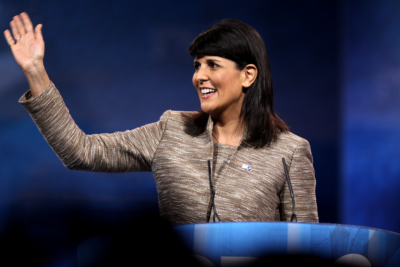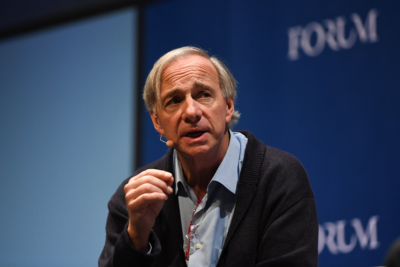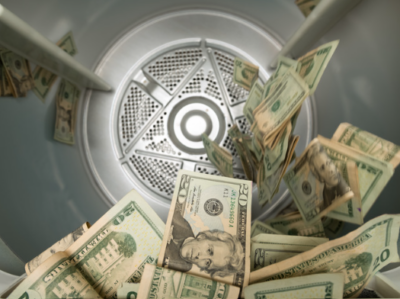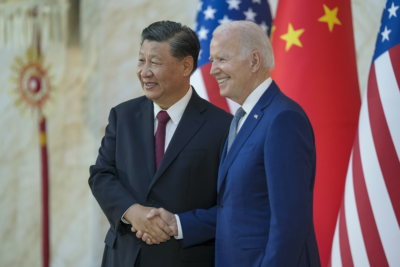Hedge Funds, A.I., and Media Wars
A presidential election – and democracy – may be at risk.

Sign up to unveil the relationship between Wall Street and Washington.
A presidential election – and democracy – may be at risk.
Journalists have often wished, rather fancifully, for a way to help the average voter improve the caliber of their information filter to separate the signal from the noise. But what happens when there’s far more noise than signal? That’s becoming a problem.
For anyone browsing social media or even traditional news sites these days, it doesn’t take long to see that, in many cases, the quality of information has fallen precipitously and the narratives are woefully hypercharged with emotional language, knee-jerk accusations and a barrage of psychological verbiage (“gaslighting,” anyone?) and pathologies straight out of the DSM-5. Maybe there’s something to it; perhaps all of America just needs a good therapist right now. Probably.
Yet the ground continues to shift, increasing the difficulty level. More than half of America’s daily newspapers are now controlled or owned in part by hedge funds, private equity firms, or other asset managers, according to estimates gathered over the past few years. And many of them, like New York-based Alden Global Capital – a hedge fund notorious for its “vulture capitalism” investing approach – claim to want to save newspapers from extinction, but deprioritize the quality of those publications’ content in favor of the bottom line. As one employee at an Alden newspaper told The Financial Times, “At best, we’re numbers on a spreadsheet. At worst, we’re not even on a spreadsheet.”
The drop in the quality of American news amid what is widely seen as scorched-earth, budget-slashing exercise is further amplifying the noise and diminishing the signal at a time when voters need clarity the most. Over the past two decades, nearly 2,000 newspapers have closed their doors amid mass layoffs, as tech giants like Google, Facebook, Yahoo and Microsoft continue to gobble up ad revenue and replace them.
With the 2024 presidential election ramping up, the Republican Iowa Caucuses kicking off Monday, and a nervous electorate bracing for a headline-driven, hotly contested presidential race, this is simply not a good time for it.
Yet across social media channels, a similar trend is emerging of mudslinging and misinformation – most noticeably this year on X, formerly known as Twitter – bought for $44 billion in 2022 by Elon Musk and then effectively left to itself. While Musk has declared his allegiance to free speech, so far he has used his takeover to lambast perceived foes and repeatedly deplatform journalists and critics alike, engaging in a fresh round of scattershot suspensions this week. As of this writing, he is describing himself on his feed as “(CTO) Chief Troll Officer.” (Maybe that’s meant to be amusing?)
Against this backdrop, the swift rise of artificial intelligence has put even some of the most powerful, well capitalized media organizations on the back foot, as they seek to distribute and monetize their content – but also protect it from being improperly absconded with by robots.
That’s according to a landmark lawsuit filed in Manhattan federal court by The New York Times on Dec. 27, which alleges millions of its articles were lifted, without the newspaper’s permission, to train AI chatbots that not only compete with it – but also spout off passages from Times stories verbatim, without licensing its content. The Times is suing San Francisco-based OpenAI (co-founded by Musk, although he left in 2018) and Microsoft for copyright infringement, alleging they are responsible for “billions of dollars in statutory and actual damages” for copying and using the newspapers’ works for ChatGPT and other A.I. platforms.
In its filing, the full text of which can be read here, the paper directly linked its investment in journalism to fostering an informed electorate, noting “independent journalism is vital to our democracy” and is “increasingly rare and valuable.” It added that for more than 170 years, The Times has supported “deeply reported, expert, independent journalism…often at great risk and cost, to inform the public about important and pressing issues.” It went on to suggest that such investment is being imperiled by articles being “used to train automated chatbots that now compete with the news outlet as a source of reliable information.”
According to The Times, it had sought a resolution with OpenAI and Microsoft before filing the suit, but the parties were unable to come to an agreement. Microsoft declined to comment on the case, but an OpenAI spokesperson stated, “We respect the rights of content creators and owners and are committed to working with them to ensure they benefit from A.I. technology and new revenue models.”
As others line up to file suit over the unauthorized use of their works for the training of chatbots and A.I. programs – including comedian Sarah Silverman and author George R.R. Martin of “Game of Thrones” fame – the newspaper’s case may prove momentous for not just artists, journalists and writers, but the fate of the news industry itself.
As The Times observed, “This work has always been important. But within a damaged information ecosystem that is awash in unreliable content…journalism provides a service that has grown even more valuable to the public by supplying trustworthy information, news analysis, and commentary.”
That is to say, if journalism is able to receive the funding and support it needs to be a reliable source of information for American voters – above the roar of social media and self-serving billionaires – it may stand a chance.
But it won’t get there if it continues to be overwhelmed by the interests of hedge funds, investment firms and asset managers who won’t put readers – or the public mission of journalism – before profits.
Case in point: ValueAct Capital, a San Francisco activist hedge fund, has reported grubstakes in both The New York Times and Microsoft. That’s not really ideal when one is suing the other.
The views expressed in this op-ed are solely those of the author and do not necessarily reflect the opinions or policies of The Daily Upside, its editors, or any affiliated entities. Any information provided herein is for informational purposes only and should not be construed as professional advice. Readers are encouraged to seek independent advice or conduct their own research to form their own opinions.











